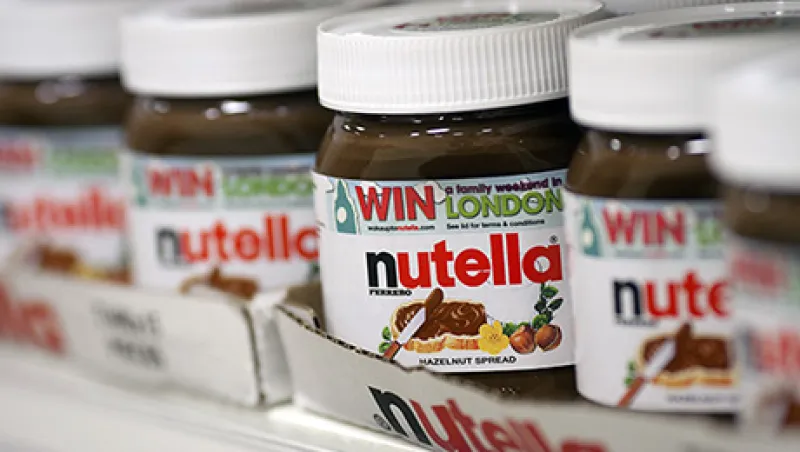What’s in a nut? If you’re Turkey, this rich source of protein and monounsaturated fat is vital to your macroeconomic health. Known for its pistachio-filled baklava, the country is also by far the world’s top producer of hazelnuts, accounting for some 70 percent of global supply.
Lately, though, nature hasn’t been cooperating. Turkey usually churns out almost 600,000 tons of the tree nut each year; in 2013 that bounty was worth about $1.85 billion. Heavy storms and frosts this past winter and spring damaged the crop on the country’s normally temperate Black Sea coast, forcing growers to reduce their outlook to 370,000 tons. Agriculture generated approximately $5 billion of exports last year, including $1.7 billion from hazelnuts, a relatively modest share of the country’s total exports of $152 billion. But with a current-account deficit running at about 6 percent of gross domestic product — the highest rate among major emerging-markets economies — any hit to exports is potentially bad news for the economy.
As a supply crunch looms, the price of hazelnuts is set to spike when the harvest starts this month. According to initial numbers released September 2, Turkish hazelnuts are expected to fetch an all-time high of 13 Turkish lira ($6.02) per kilogram, up from last year’s price of 6 lira (then worth $2.77). “By today’s standards, the likelihood that prices will fall below 10 lira is very weak,” Mustafa Demirci, head of the regional Giresun Commodity Exchange, in the heart of hazelnut country, told local news site Haber61.net.
Farmers and wholesalers have been stockpiling the nuts in hopes of getting even more for their goods from outside consumers such as Ferrero, the Alba, Italy–based confectioner whose products include Nutella spread, Ferrero Rocher chocolates and Kinder chocolate eggs. The largest purchaser of hazelnuts, buying up some 25 percent of the world’s supply, Ferrero sources 80 percent of its hazelnuts from Turkey, according to Turkish newspaper Hürriyet.
Given that each 13-ounce jar of Nutella contains more than 50 hazelnuts, Ferrero has a vested interest in the crop. On July 16 it announced its $500 million acquisition of top Turkish producer Oltan Gida, headquartered in Trabzon, the hazelnut region’s biggest city.
The same inclement weather that affected hazelnuts has hit yields and pushed up prices of several other Turkish export crops, including apricots, lemons, pistachios and olives. Nationwide, fruit production is down 90 percent this year, says Semsi Bayraktar, president of the Turkish Union of Agricultural Chambers (TZOB).
Large domestic and foreign food processors have the capital to weather the storm, but the farm woes will pinch Turkish consumers. Food prices had risen by 14.44 percent in August from a year earlier, the steepest jump in six years, aggravating a situation that saw core inflation — that is, excluding food and fuel — edge up to 9.54 percent, nearly twice the Turkish central bank’s target. Rising inflation doesn’t help the prospects for interest rate cuts, notwithstanding the pressure to lower rates coming from Recep Tayyip Erdogan, voted in last month as Turkey’s first directly elected president. The central bank, which had jacked up its one-week repo rate by 5.5 percentage points in January to stem the lira’s devaluation, trimmed the rate by a total of 1.75 points, to 8.25 percent, between May and July but held it steady in August. The bank’s next meeting is scheduled for September 25.
One silver lining for Turkey and its beleaguered farm economy is the opening made by Moscow’s recently announced one-year embargo on fruit, vegetables, meat, poultry, fish and dairy products from Australia, Canada, the European Union, Norway and the U.S. In 2013, Russia’s food imports totaled some $39 billion, according to the Geneva-based International Trade Centre; of the $17.2 billion of goods from countries covered by the embargo, $9.2 billion fell into the banned categories. That year Turkey’s agricultural exports to Russia amounted to $1.18 billion, TZOB reports.
Output of much of Turkey’s crops may be sorely lagging behind. But prices are up, and any agricultural surplus may find an eager buyer in Russia, which “is particularly tied to the outside for fresh fruits and vegetables,” TZOB president Bayraktar noted in an August 8 press release. In a nutshell, this could make the most of a bitter harvest.
Follow Anne Szustek on Twitter at @the59thStBridge.
Get more on emerging markets and on macro.






